
NOAA American Samoa Observatory: Gateway to Climate Science
Explore climate science at the NOAA American Samoa Observatory, a vital research hub amidst the stunning beauty of Tutuila Island.
Located on Cape Matatula, past Tula village, the NOAA American Samoa Observatory is a crucial site for monitoring global climate and ecological health in the South Pacific. While primarily a research facility, its significance in understanding climate change offers visitors a unique perspective on environmental science.
A brief summary to NOAA American Samoa Observatory
- QC3P+25F, Tula, Eastern District, AS
- +1684-258-2848
- Visit website
Local tips
- Check the observatory's website for any public events or educational programs.
- Consider visiting early in the day to enjoy cooler temperatures and clearer skies.
- Bring your camera to capture the stunning views of the surrounding landscape.
- Respect the research being conducted by keeping noise levels down and following all posted guidelines.
- Plan your visit as part of a broader exploration of American Samoa's stunning natural beauty and cultural heritage.
Getting There
-
Bus
From Pago Pago, catch an 'aiga' bus heading towards Tula. These buses are family-owned and display village names. The bus will drop you off in Tula. From there, the observatory is a short walk. Bus fares are around $2.50 or less. Buses operate throughout the day, with reduced service on Saturdays and limited service on Sundays. Check with the American Samoa Visitors Bureau for a list of fares and destinations.
-
Taxi
Taxis are available in Pago Pago and at the airport. Negotiate the fare before starting your trip. A taxi from Pago Pago to the observatory will cost approximately $1 per mile, totaling around $24, as the observatory is about 24 miles from the airport. There are additional charges for extra luggage above the allowance.
-
Car
If driving from anywhere on Tutuila Island, follow the main road (AS001) towards the eastern end of the island. Continue past Pago Pago and follow signs to Tula. The observatory is located on Cape Matatula, just past Tula village. Car rentals are available at the airport and in Pago Pago.
Discover more about NOAA American Samoa Observatory
Iconic landmarks you can’t miss
NOAA American Samoa Observatory
0.0 km
Explore climate science at the NOAA American Samoa Observatory, a vital research hub amidst the stunning beauty of Tutuila Island.
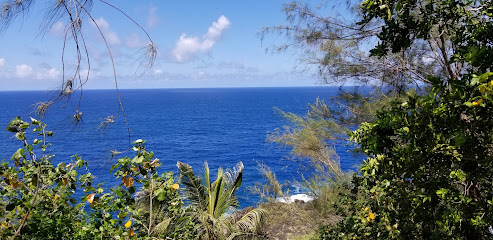
Two Dollar Beach
8.1 km
Experience the tranquility and natural beauty of Two Dollar Beach in Avaio, Eastern District, a perfect getaway for relaxation and adventure.
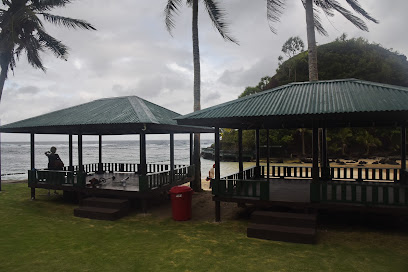
North Pioa Mountain
10.5 km
Hike to the summit of North Pioa Mountain for panoramic views and experience the lush, rain-soaked beauty of American Samoa's volcanic heart.

Sadie's by the Sea
13.1 km
Experience beachfront bliss at Sadie's by the Sea in Pago Pago, American Samoa. Relax, explore, and immerse yourself in island charm.

Unmissable attractions to see
Amouli Beach Fales
3.4 km
Experience the serene beauty of Amouli Beach Fales, a traditional Samoan retreat perfect for relaxation, adventure, and cultural immersion.
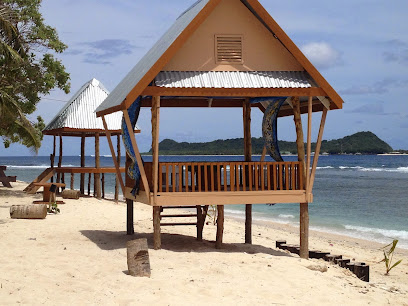
Aunu'u
4.1 km
Discover Aunu'u: A serene Samoan island with volcanic landscapes, rich culture, and tranquil beaches, just a short boat ride from Tutuila.
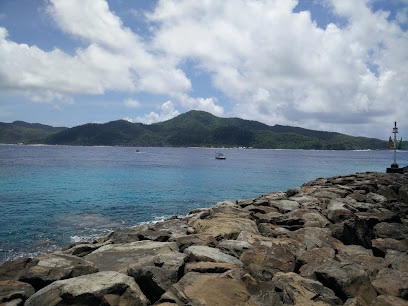
Aunuu Island National Natural Landmark
4.8 km
Discover Aunuu Island: A volcanic paradise with unique landscapes, rich history, and authentic Samoan culture in American Samoa.
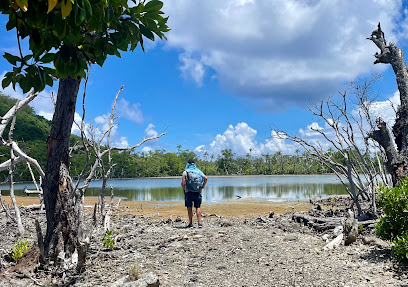
Aunu’u National Natural Landmak
4.8 km
Discover Aunu'u Island: A volcanic paradise with lush landscapes, unique wildlife, and rich Samoan culture, a short ferry ride from Tutuila.

Amaua & Auto Village Marine Protected Area
7.2 km
Explore American Samoa's underwater paradise: vibrant reefs, diverse marine life, and tranquil beauty await at this protected coastal haven.
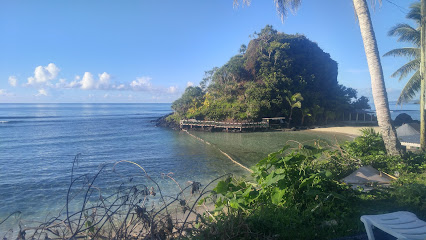
Tisa's Barefoot Bar
8.9 km
Experience the laid-back island vibe at Tisa's Barefoot Bar in Alega, American Samoa. Enjoy fresh seafood, tropical cocktails, and stunning ocean views.
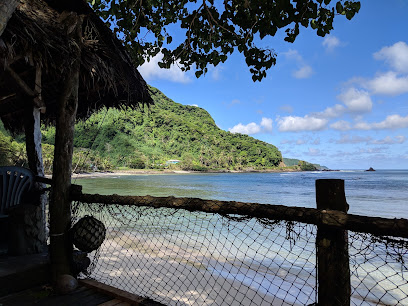
Rainmaker Mountain
10.0 km
Discover Rainmaker Mountain in American Samoa: a lush, iconic peak offering stunning views and a glimpse into the island's unique ecosystem.
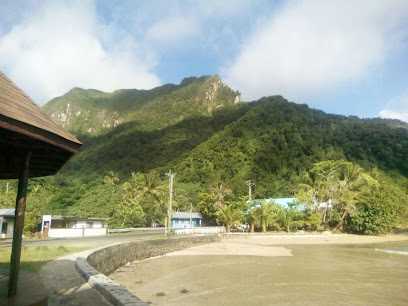
Pola Island Viewpoint
10.5 km
Experience breathtaking panoramic views of Pola Island and the stunning Vai'ava Strait from this tranquil viewpoint in Vatia, American Samoa.
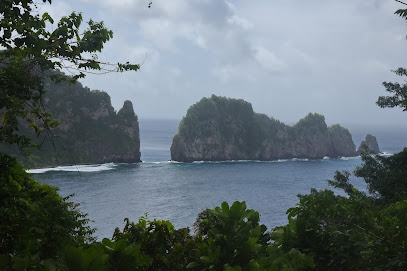
Aua
11.2 km
Discover Aua, American Samoa: Where stunning coasts meet rich culture and history in a peaceful village setting.

Fautasi boat Samoa
11.4 km
Experience Samoan maritime culture: witness the Fautasi boat, a symbol of tradition, teamwork, and enduring community spirit in Aua.
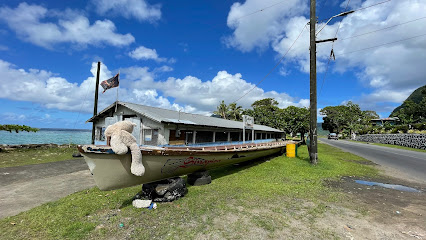
Breakers Point Trail
11.5 km
Discover the natural beauty and cultural richness of Breakers Point Trail in American Samoa, offering stunning coastal views and lush landscapes.
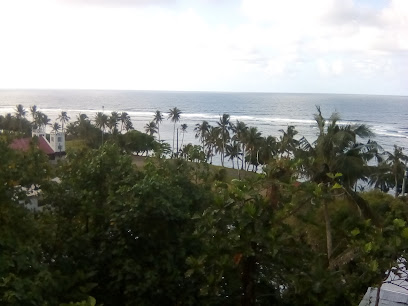
Tufu Beach
11.5 km
Discover Tufu Beach in Vatia, American Samoa: a secluded, rocky haven with stunning coastal views and tranquil escape.
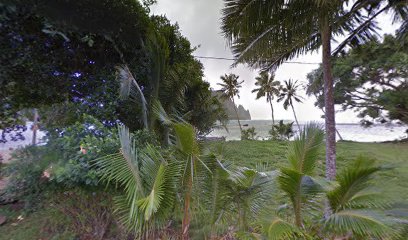
Pola Island
11.5 km
Discover Pola Island: A rugged, iconic sea stack and seabird sanctuary in American Samoa's National Park.
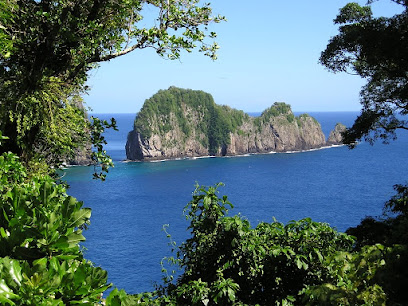
Vai'ava Strait National Natural Landmark
11.5 km
Discover dramatic volcanic cliffs, nesting seabirds, and stunning Pacific views at this American Samoa natural landmark.
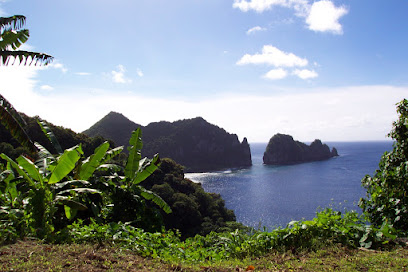
Breakers View Point
11.6 km
Hike to Breakers View Point in Lauli'i for breathtaking Pacific Ocean views and a unique blend of natural beauty and American Samoa's WWII history.
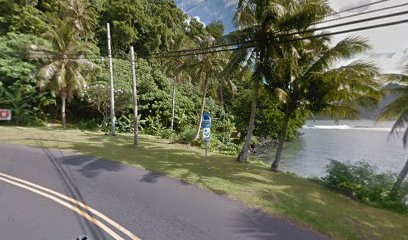
Essential places to dine
The Royal's Kingdom
6.3 km
Discover exceptional dining and luxurious accommodations at The Royal's Kingdom in beautiful Pago Pago - where culinary excellence meets hospitality.
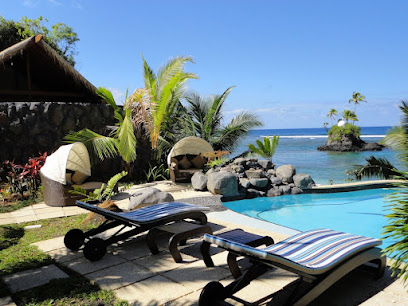
Moon Korean Restaurant
12.4 km
Discover authentic Korean cuisine at Moon Korean Restaurant in Leloaloa—where every dish tells a story of tradition and flavor.

Kings Pizzeria
12.7 km
Experience mouthwatering pizza perfection at Kings Pizzeria in Leloaloa - where tradition meets flavor in every slice.

Goat Island Cafe
13.1 km
Savor authentic Samoan flavors at Goat Island Cafe - where every dish tells a story.
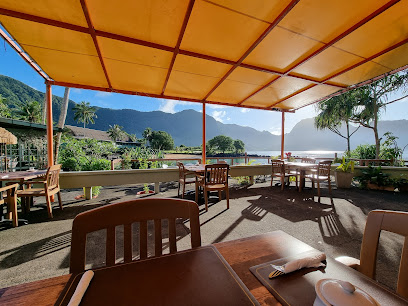
PJK Fish Market
13.2 km
Discover fresh seafood delights at PJK Fish Market in Utulei – where local flavors meet oceanic freshness for an unforgettable culinary experience.
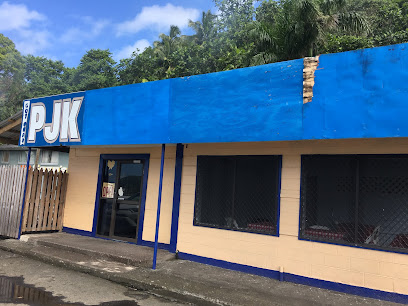
Fast Food EOB
13.5 km
Savor delicious fast food at Fast Food EOB in Utulei—your perfect pit stop for quick bites and local flavors.

Fiafia Restaurant
13.6 km
Discover authentic Asian cuisine at Fiafia Restaurant in Fagatogo, where every dish tells a story of rich flavors and cultural heritage.

Faga'alu Restaurant
13.6 km
Discover authentic Vietnamese cuisine at Faga'alu Restaurant in Pago Pago – a must-visit for food enthusiasts seeking unique flavors.

Markets, malls and hidden boutiques
Setailoto Store
4.1 km
Explore Aunu'u with convenience at Setailoto Store, where local culture meets essential shopping for tourists.
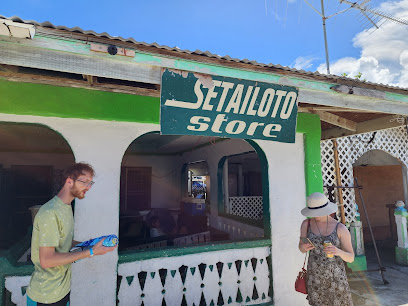
Ciao's Store
5.2 km
Discover the charm of Ciao's Store in Alofau, where local flavors meet international selections in a cozy grocery experience.
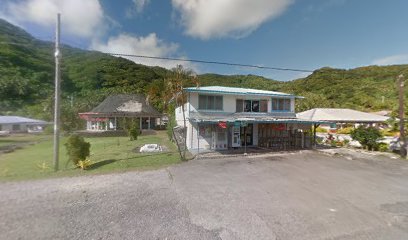
Skyview Incorporated
11.0 km
Discover the flavors of Samoa at Skyview Incorporated, your go-to grocery store in Pago Pago for local products and fresh essentials.

Amy's Gifts Shop
11.2 km
Explore Aua's local culture through unique gifts and handcrafted treasures at Amy's Gifts Shop, your perfect souvenir destination.
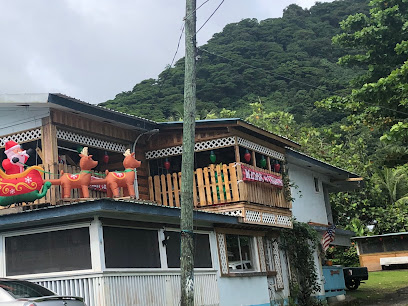
SJ Mart Aua
11.3 km
SJ Mart Aua: Your one-stop convenience store for local snacks and essentials in the heart of Eastern District.
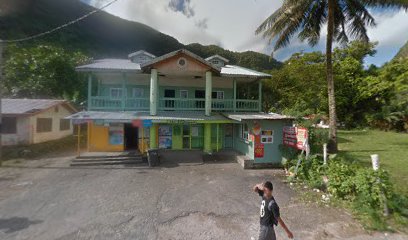
JS MART
11.3 km
Explore Aua's vibrant culture at JS MART: your destination for unique local products and authentic souvenirs in the Eastern District.
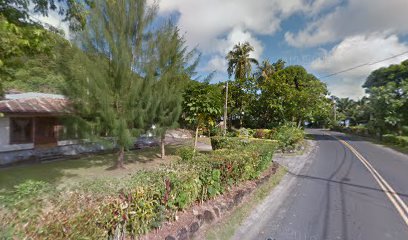
Tutuila Store
11.9 km
Tutuila Store in Leloaloa: Your go-to convenience store for local snacks, essentials, and a taste of American Samoa's vibrant culture.

Sallie's
12.0 km
Discover local charm and essential supplies at Sallie's Convenience Store in Vatia, your go-to stop for snacks and souvenirs in the Eastern District.
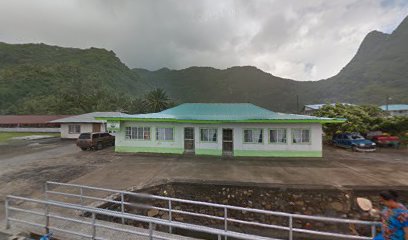
LYC (SJ MART)
12.2 km
Discover local culture and unique souvenirs at LYC (SJ MART) in Leloaloa, a must-visit shopping destination for tourists.
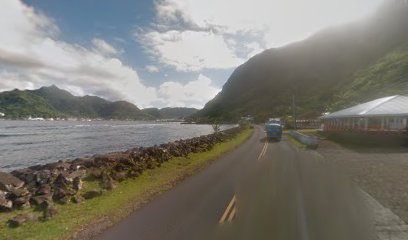
‘ai Love Boba (east)
12.7 km
Discover the vibrant flavors of the tropics at ‘ai Love Boba (East), a fast-food haven for boba enthusiasts and food lovers alike.

Samus Ice Cream
13.1 km
Experience the ultimate ice cream delight at Samus Ice Cream in Utulei, where tropical flavors meet a friendly atmosphere.

DDW Restaurant
13.2 km
Experience the vibrant culinary traditions of the Pacific at DDW Restaurant in Utulei, where fresh ingredients meet island charm.
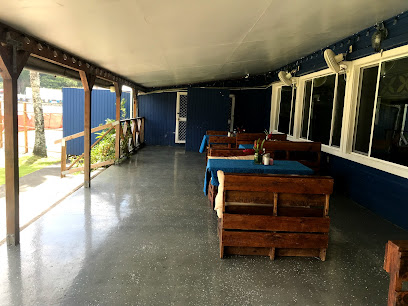
Young Mart
13.2 km
Explore Young Mart in Utulei for a unique supermarket experience, featuring local and international products that cater to every traveler’s needs.
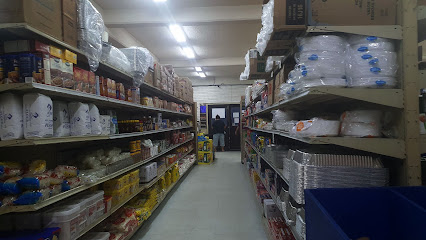
Huang mart (wholesale and retail)
13.3 km
Explore the convenience of Huang Mart in Leloaloa, your one-stop shop for snacks, drinks, and essentials during your travels in the Eastern District.
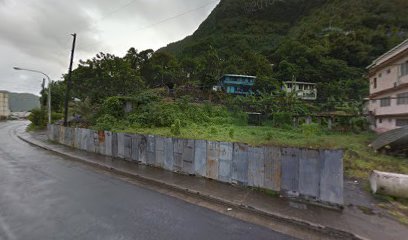
EZFIX (Fagatogo)
13.5 km
Explore Fagatogo with confidence—EZFIX offers expert mobile and computer repair services to keep you connected during your travels.
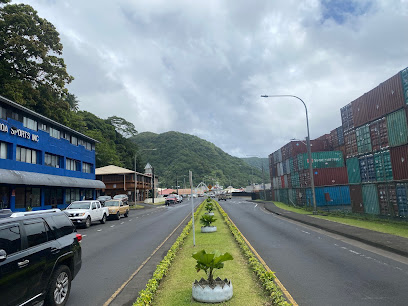
Essential bars & hidden hideouts
Blue House Cafe& Restaurant
13.8 km
Experience authentic Thai cuisine in a tranquil setting at Blue House Cafe & Restaurant in Faga'alu, Eastern District.

Matai Restaurant
13.9 km
Savor the rich flavors of American cuisine at Matai Restaurant in Fagatogo, where fresh ingredients meet a welcoming atmosphere.
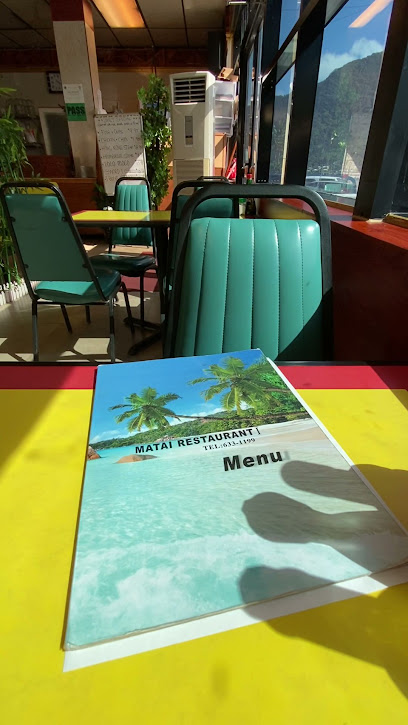
Little Mexico
13.9 km
Discover the vibrant flavors of Mexico at Little Mexico, a delightful restaurant in Fagatogo for an unforgettable dining experience.

Nightclubs & after hour spots
Rotary Club of Pago Pago Club Room
13.1 km
Experience the heart of American Samoa's community and culture at the Rotary Club of Pago Pago Club Room, where service meets spirit.
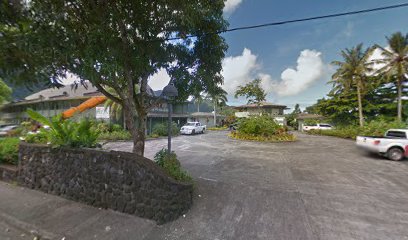
Paradise Pizza
14.6 km
Experience the best of Pago Pago's dining scene at Paradise Pizza, where fresh ingredients meet mouthwatering flavors in a vibrant atmosphere.

Regal Nu'uuli Place Twin
18.0 km
Discover the cinematic charm of Regal Nu'uuli Place Twin, where the latest films meet a vibrant local culture in the heart of Pago Pago.
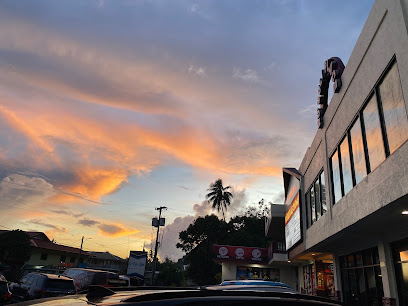
Paradise Bar & Grill
18.3 km
Experience the vibrant atmosphere of Paradise Bar & Grill in Nu'uuli, where tropical vibes meet live music and delicious cuisine.

Lions Club of Pago Pago Den
18.4 km
Explore the heart of Tafuna at the Lions Club of Pago Pago Den, where community spirit and charitable efforts come together.
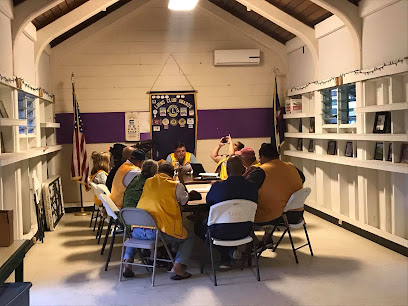
Oasis
19.0 km
Experience the authentic flavors of Korea at Oasis in Tafuna, where every dish tells a story in a vibrant and welcoming atmosphere.

Flame Night Club
19.0 km
Discover the electrifying nightlife at Flame Night Club, the ultimate destination for music, dance, and unforgettable experiences in Tafuna.
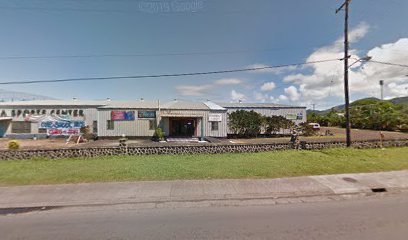
Naomi namz Taalas
19.3 km
Discover the vibrant nightlife at Naomi namz Taalas, the premier night club in Tafuna, where energy meets culture in every beat.

Good Vibes Bar And Grill
19.9 km
Experience the taste of family-friendly dining at Good Vibes Bar And Grill in Tafuna, American Samoa, where delicious meals meet a warm atmosphere.
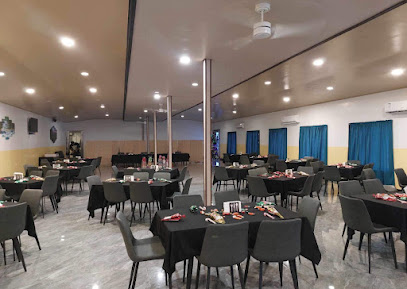
Naomi
20.1 km
Discover the vibrant nightlife at Naomi, Tafuna's premier night club, where music, dance, and local culture come together for an unforgettable experience.




